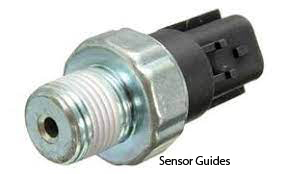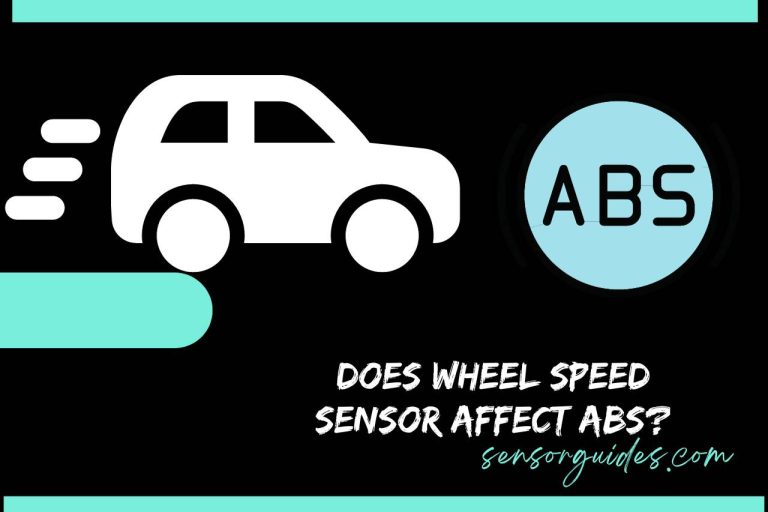Does the Coolant Temp Sensor Affect Your Car’s AC? All You Need To Know
Have you ever wondered how the air conditioning (AC) system in your car works? Well, there’s more to it than just cold air magically appearing. One important component that plays a role in your car’s AC performance is the coolant temperature sensor (CTS). In this article, we’ll delve into how this sensor can affect your AC and more. Welcome to Sensor Guides.
Table of Contents
What Does the Coolant Temp Sensor Do?
The coolant temperature sensor, often abbreviated as CTS, is like a watchful guardian for your car’s engine. It keeps track of the temperature of the engine coolant and sends this information to the engine control unit (ECU).
Think of the ECU as the brain of your car—it uses the data from the CTS to manage different aspects of the engine’s cooling system. This includes controlling the radiator fans, water pump, and thermostat.
Resetting the Coolant Temperature Sensor: A Step-by-Step Guide
sensor guides
Does the Coolant Temp Sensor Affect Your AC?
Yes, the coolant temperature sensor can indeed impact your car’s AC system. If the CTS decides to go a bit haywire, it might send incorrect signals to the ECU. Imagine this: the CTS gets it wrong and tells the ECU that the engine is hotter or colder than it actually is. What happens next? Well, a bit of chaos can ensue:
- AC Compressor Drama: The AC compressor might not turn on at all, or it could start and then abruptly shut down. It’s like someone playing with the light switch in a room, leaving you in a sweaty situation.
- Hot and Cold Confusion: Your AC might not blow cool air or blast cold air for a moment and then switch to lukewarm mode. Imagine having a fleeting cool breeze on a scorching day—frustrating, right?
- Symphony of Weird Noises: Your AC might start composing a symphony of unusual noises. Rattles, hums, and clunks could make your car sound like a wrong musical experiment.
- Odor Anomaly: A bad CTS might even contribute to an unpleasant smell wafting from your AC vents. Instead of a breath of fresh air, you’re greeted with an unwelcome fragrance.
Symptoms of a Faulty Coolant Temp Sensor
How do you know if your CTS has gone rogue? Keep an eye out for these signs:
- Engine overheating
- Wonky AC behavior (as mentioned earlier)
- Poor fuel economy
- Engine knocking
1. Engine Overheating: Imagine your car’s engine as a busy kitchen. If things get too hot, it’s like the stove catching fire. A faulty CTS can mess up the temperature info it sends to the car’s brain (ECU). As a result, your engine might start overheating, which is never a good recipe.
2. Wonky AC Behavior: Think of your car’s AC as your personal weather control. A glitchy CTS can cause your AC to have a mind of its own. It might blow cold air one moment, only to switch to warm air the next. It’s like your AC is playing a prank on you during a heatwave.
3. Poor Fuel Economy: Picture this: your car’s engine as a marathon runner. It needs just the right amount of fuel to perform well. If the CTS sends mixed-up signals to the ECU, your engine might end up using more fuel than necessary. It’s like the runner taking a detour during the race and losing precious energy.
4. Engine Knocking: Imagine your car’s engine as a symphony orchestra. If everything’s in tune, you get smooth music. But a dodgy CTS can mess up the harmony. It might cause your engine to knock or make strange noises, like a violin screeching in the middle of a beautiful piece.
LT1 Coolant Temp Sensor Symptoms Explained; By Sensor Guides
sensor guides
Diagnosing and Fixing a Bad Coolant Temp Sensor
If you suspect your CTS is acting up, it’s time to roll up your sleeves and diagnose the issue. Here’s what you can do:
- Mechanic Magic: Seek the help of a skilled mechanic. They’ll whip out their diagnostic tools to see what signals your CTS is sending to the ECU.
- Signal Check: If the CTS signal isn’t playing by the rules, it’s time for a replacement. Don’t worry—it won’t break the bank, and the labor cost won’t give you a heart attack either.
- Qualified Replacement: It’s crucial to have a qualified mechanic handle the replacement. They’ll make sure the new CTS is snugly in place and ready to do its job.
Final words
In a nutshell, your car’s AC and the coolant temperature sensor have a connection that can’t be ignored. So, if your AC decides to be moody or your car’s engine starts acting strange, don’t forget to give the CTS a friendly nod of consideration. After all, it’s just doing its best to keep your car cool and comfy on the road.






